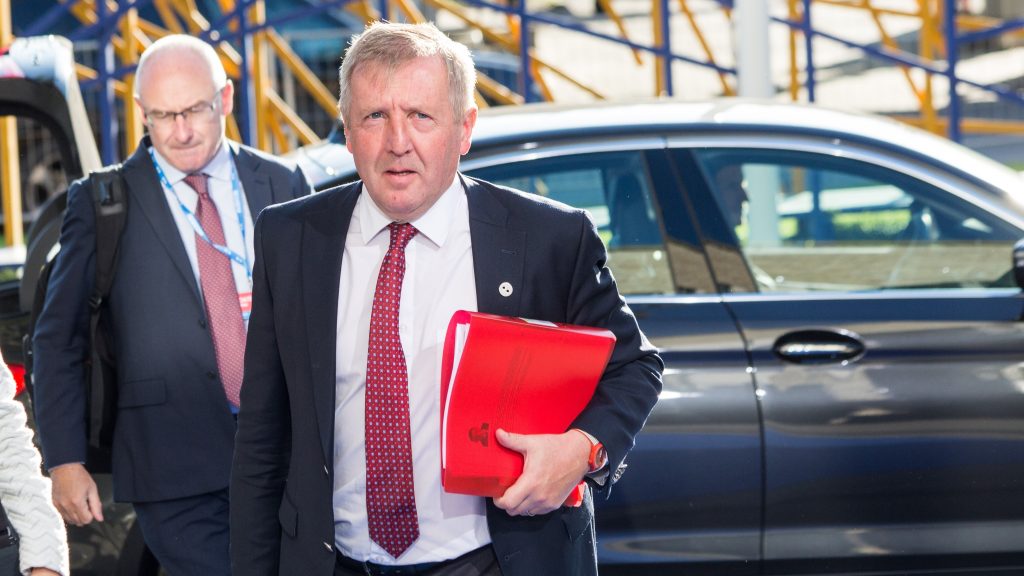Significant number of farmers deemed ineligible for GLAS payment

May 22nd, 2018
The government has started to process balancing payments under an agri-environment scheme to farmers, however, many participants have been deemed ineligible for payments.
The balancing payments represent 15 per cent of the 2017 year payment to farmers in the Green Low-Carbon Agri-Environment (GLAS) scheme.
Farmers across the country have been left frustrated in recent years with delays in payments due to IT issues at the Department of Agriculture, Food and the Marine.
GLAS offers grants of up to €5,000 per year to farmers who carry out five-year action plans to protect and enhance biodiversity and habitats, improve water quality and mitigate climate change on their farms.
Participants choose the actions they will take from a list in the scheme, though some actions are mandatory for farms in certain locations.
Actions include the installation of bee boxes and the maintenance of traditional hay meadows to support solitary bees and preserve important food sources for pollinators.

Michael Creed, Minister, Department of Agriculture, Food and Marine, Ireland
Photo: Aron Urb
The Minister for Agriculture, Food and the Marine, Michael Creed, TD stated last week that €17.5 million will be paid this week to 28,000 farmers. Another large payment is planned for next week.
Minister Creed said that the GLAS scheme has paid €53 million to Irish farmers this year and €350 million since it began in 2015, a “significant boost” to on-farm cash flow.
However, approximately 17,000 GLAS participants need to complete certain requirements under the scheme before they are to be paid.
The Irish Farmer’s Association (IFA) and the Department for Agriculture say there are around 50,000 farmers in the GLAS scheme.
This means that roughly 30 per cent of the farmers in the GLAS scheme has not received their full balancing payments for 2017.
The main issues affecting payment of applications are submissions of Nutrient Management Plans (NMP) and Commonage Management Plans (CMP), the Department has said.
Cash flow on farms is a major issue in general, but especially so in 2018 due to the recent fodder crisis, said IFA Rural Development Chairman, Joe Brady.
“Problem cases must be resolved by the Department and no farmer should be denied payment,” he added.
Poor grass growth due to cold weather and wet conditions in fields from long periods of rainfall in early 2018 forced farmers to keep animals indoors and fed on fodder this spring when they should be out on grass.
This led to a shortage of fodder – dried hay or straw – forcing many farmers to spend thousands to buy additional feed before the department brought in a support scheme.
Overall average farm income in 2017 is €31,900, compared with €23,500 in 2016, although this increase is driven largely by the improvement in dairy farms.
According to Teagasc Economist Trevor Donnellan, the overall average farm income is likely to be down in 2018 at just over €29,800.
Eddie Davitt, a farmer from Sligo and rural development chairman at the IFA’s county branch, was recently quoted in Agriland as stating that payment delays will deter farmers from participating in similar schemes in the future.
There have also been complaints from the Irish Nature and Hill Farmers Association, which said that hill farmers struggle to draw payments from GLAS.
[x_author title=”About the Author”]







